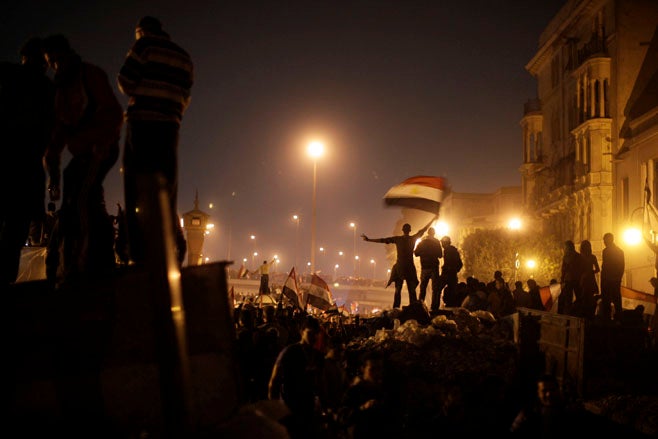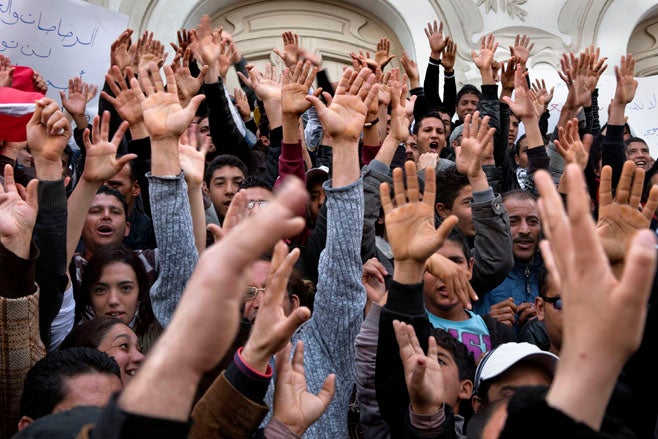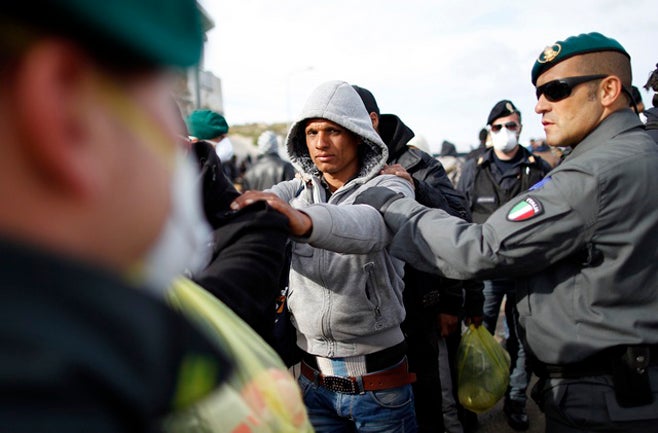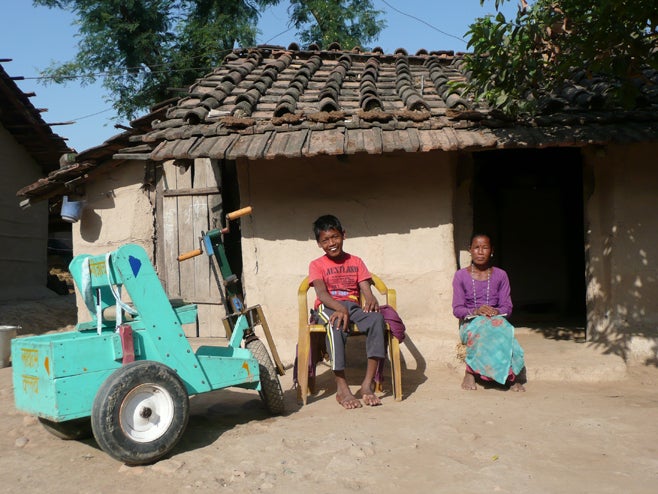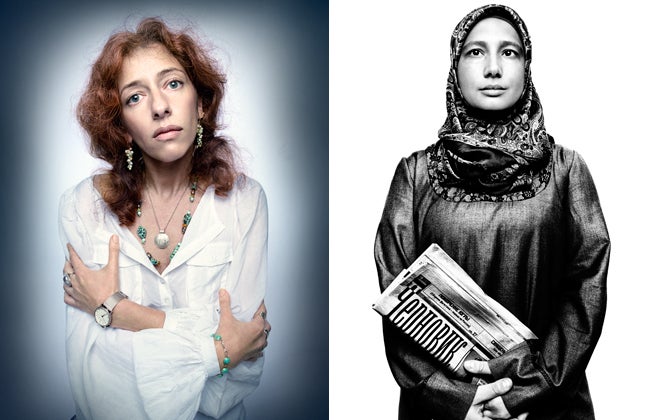South Sudan seceded from Sudan on July 9 under the terms of the 2005 Comprehensive Peace Agreement (CPA) that ended Sudan’s 22-year civil war. The split was peaceful but Sudan saw increasing popular unrest and widening armed opposition in the months that followed. In Khartoum, the capital, government authorities pursued familiar repressive tactics including harassing, arresting, detaining, and torturing perceived opponents of the government; censoring media; and banning political parties.
Volatile areas north of the South Sudan border descended into conflict while a peace agreement signed by the government and one rebel group did not end simmering conflict or improve the human rights situation in the western province of Darfur. At this writing Sudan’s proposed new constitution had not been adopted amid calls by President Omar al-Bashir to impose a strict version of Islamic law without exception for religious and ethnic minorities.
New Conflict Near South Sudan Border
The ruling National Congress Party (NCP) and the South’s ruling Sudan People’s Liberation Movement (SPLM) remained deadlocked on the disputed territory of Abyei. In May Sudan conducted a military offensive to take over Abyei in which government forces and allied militia burned and looted homes and other property, causing more than 100,000 civilians to flee. In June the parties agreed to demilitarize the area and deploy an Ethiopian peacekeeping force under the auspices of the United Nations.
In June fighting started in Southern Kordofan between Sudan government forces and elements of the South’s Sudan People’s Liberation Army (SPLA) after weeks of growing tension over security arrangements and a state election in which Ahmed Haroun—whom the International Criminal Court (ICC) wants for war crimes and crimes against humanity in Darfur—narrowly won the governorship in May.
In Kadugli, the capital of Southern Kordofan, government soldiers and militia shot civilians and arrested suspected SPLM supporters during house-to-house searches and checkpoint stops, and looted and burned churches and homes. A report released in August by the Office of the United Nations High Commissioner for Human Rights documented patterns of unlawful killings and widespread attacks on civilian properties that could amount to war crimes and crimes against humanity.
Sudan bombed indiscriminately across the Nuba Mountains, forcing the population to seek shelter in caves and mountains where they lacked food, shelter, and hygiene. The government refused to allow aid groups to affected areas, effectively blockading much of the Nuba Mountains.
In early September conflict spread to the Blue Nile state, with fighting between government forces and an armed opposition linked to SPLM-North, the successor to the SPLM in Sudan. Tens of thousands of civilians fled across the border to Ethiopia to escape the conflict. The Sudanese government bombed areas held by opposition forces, and again blocked aid groups from accessing the area.
Ongoing Conflict in Darfur
In December 2010 and early 2011 a surge in government-led attacks on populated areas in North and South Darfur killed and injured scores of civilians, destroyed property, and displaced more than 70,000 people, largely from ethnic Zaghawa and Fur communities with perceived links to rebel groups. The fighting followed a break between the government and Minni Minawi, the only major Sudan Liberation Army (SLA) rebel leader to have signed the 2006 Darfur Peace Agreement.
Much of Darfur remained off limits to the African Union/UN Mission in Darfur and aid groups, curtailing the peacekeepers’ ability to protect civilians or monitor the human rights situation. The vast majority of Darfur’s displaced population, estimated at 2.5 million people, remained in camps in Darfur and Chad. On several occasions, security forces carried out violent search-and-cordon operations, arresting dozens of camp residents. Government forces were also responsible for sexual violence against displaced women and girls.
A peace agreement signed in July by the Sudanese government and one rebel group, the Liberation and Justice Movement, did not stop sporadic fighting or address ongoing human rights abuses and impunity. The government, with support from AU/UN peacekeepers, pursued controversial plans for a "domestic political process" to end the Darfur conflict.
Although President al-Bashir announced in March that he would lift the state of emergency in Darfur, he had not done so at this writing. Authorities relied on emergency and national security laws to detain perceived opponents for long periods without judicial review, often subjecting them to ill-treatment or torture while in detention. Those detained in 2011 included Sudanese employees of the AU/UN peacekeeping mission and of an international aid group. Four displaced leaders, held under emergency laws in North Darfur since 2009, remained in prison.
Crackdown on Protesters
In January in response to demonstrations inspired by the popular uprisings in Egypt and Tunisia, security forces arrested more than 100 protesters in Khartoum and Omdurman alone. The National Intelligence and Security Service (NISS) detained dozens of protesters for several weeks, subjecting them to beatings, sleep deprivation, electric shock, and other forms of physical and mental abuse, including death threats and threats of rape.
Throughout the year security forces used violence to disperse peaceful protests across the country, often at universities where students gathered to protest a range of government policies and price hikes, and detained many. Security officials were also implicated in sexual violence and harassment of female activists, including the brutal rape in mid-February of Safiya Ishaq, a youth activist who was forced to flee the country after speaking out about her ordeal.
Arrest and Detention of Perceived Opponents
The NISS also targeted opposition party members, activists, and other perceived opponents. In January officials arrested and detained opposition figure Hassan al-Turabi and members of his Popular Congress Party for four months after he warned of an uprising if the government refused to make reforms.
In June, when fighting broke out in Southern Kordofan, security forces rounded up ethnic Nuba suspected to be SPLM members or supporters. Among those arrested by NISS was Dr. Bushra Gammar Hussein Rahma, a prominent Nuba human rights activist, who remained in detention without charge at this writing.
In September, when fighting spread to Blue Nile, security forces, including NISS, arrested more than 100 suspected party members of SPLM-North, including the well-known Sudanese writer, artist, activist, and former state adviser on cultural affairs, Abdelmoniem Rahma. Some were released following renunciations of their political affiliation to the party. In September the government also banned 17 political parties including SPLM-North citing their southern links.
Media Restrictions
Sudanese authorities continued to stifle the media by arresting, detaining, and prosecuting journalists reporting on sensitive topics, and by confiscating publications.
Between October 30 and November 2, 2010, NISS arrested a group of Darfuri journalists and activists affiliated with Radio Dabanga, a news service reporting on Darfur, and subjected them to beatings and other ill-treatment and torture while in detention for weeks and months. Seven faced criminal charges, including espionage, punishable by death.
In May security officials detained and interrogated two Sudanese journalists because they tried to report on elections in Southern Kordofan. In June and September security officials arrested Al Jazeera journalists attempting to cover events in Southern Kordofan and Blue Nile.
Two prominent journalists were charged with defamation for their coverage of the February rape of Safiya Ishag by security officials. Other journalists have also been harassed or threatened with defamation charges for reporting on the case.
NISS officials confiscated editions of major newspapers for their coverage of conflicts or because of articles critical of the ruling party. Authorities also suspended a dozen newspapers, including opposition paper Ajras al Hurriya, citing their links to South Sudan.
Justice and Accountability
In 2005 the UN Security Council referred the situation in Darfur to the ICC, which has issued arrest warrants for three individuals, including President al-Bashir, on charges of war crimes, crimes against humanity, and genocide. Sudan continued to refuse cooperation with the ICC in its cases for crimes in Darfur or to meaningfully prosecute the crimes in its own courts. Despite the appointment of several special prosecutors for Darfur, Sudan has done little to promote accountability and made none of the justice reforms recommended by the AU’s High-level Panel on Darfur, headed by former South Africa President Thabo Mbeki, in its 2009 report.
Key International Actors
World leaders congratulated Sudan for allowing the South’s secession, but were largely mute in response to the human rights and laws of war violations in Southern Kordofan and Blue Nile. Neither the UN nor the AU condemned the serious violations, despite calls by the Office of the UN High Commissioner for Human Rights for an investigation into possible war crimes and crimes against humanity, or took other action to protect civilians from the conflicts.
Three ICC member states—Djibouti, Chad, and Malawi—welcomed al-Bashir to their territories, flouting their obligation to arrest him. China also welcomed him. The European Union, United States, United Kingdom, Germany, and France criticized the visits and urged Sudan and other states to cooperate with the court, including in the surrender of ICC suspects. Malaysia cancelled an anticipated visit by al-Bashir after public outcry.
The Mbeki-led AU Panel mediated between Sudan and South Sudan on critical outstanding issues, such as oil revenue sharing, border management, and the status of the contested area of Abyei. Ethiopian Prime Minister Meles Zenawi and UN and US special envoys played key roles. In June the UN authorized 4,200 Ethiopian peacekeepers for Abyei. The US also played a major role mediating a new peace agreement for Darfur, signed by the government and one rebel group at Doha.
However, key international actors did not take a unified approach to addressing the protection of civilians and ending human rights violations, particularly in Southern Kordofan and Blue Nile. The mandate of the UN peacekeeping mission in Sudan (UNMIS) expired in July, effectively ending international monitoring in Sudan, except in Darfur, where the AU/UN mission continued to face significant restrictions.
In September the UN’s Human Rights Council renewed the mandate of the UN expert on Sudan for another year, but the resolution fell short of reflecting the gravity of the situation on the ground and of calling for an international investigation or any other meaningful response to the human rights and humanitarian crisis in Sudan’s border regions of Abyei, South Kordofan, and Blue Nile.
